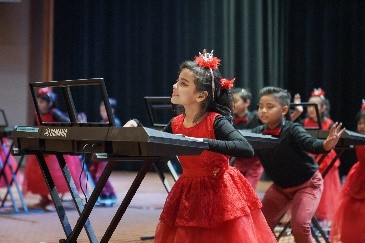■Completion of all 23 recorder training sessions
The issue of development of non-cognitive skills, such as social skills, cooperation, and discipline, was raised among local educators in Egypt and education is currently being promoted based on a new curriculum. In support of the new curriculum and in collaboration with the Egyptian Ministry of Education and Technical Education, Yamaha has completed 23 teacher training sessions aimed at expanding Japanese-style interactive instrumental music education using recorders among teachers and pupils. Preparations are currently under way to send Certificates of Completion from Japan as a further boost to teachers’ motivation.
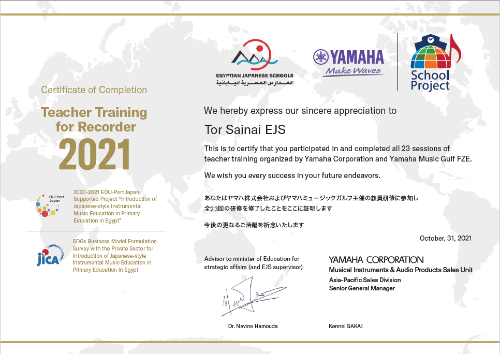
<Efforts for improvement>
In the past, when we exchanged opinions with relevant parties in Japan, we were advised that “lesson studies conducted among teachers themselves is very characteristic of Japan”, so we incorporated elements of lesson studies conducted in Japan into the training. By playing the role of the students and standing in the students’ shoes, the teachers were able to express opinions such as “the instructions you gave were very easy to follow” and “you could have made that a bit clearer.” With the actual students in their classes in mind, the teachers simulated what they would say in a classroom situation, and when the person in the role of the teacher said something that wasn’t very appropriate, they came up with responses such as “If you speak to me like that, I won’t do it.” This kind of role-playing was unusual in Egypt but was accepted by the local teachers and we felt that they participated enthusiastically in the training, resulting in an in-depth learning experience. We believe that the accumulation of such efforts will lead to enhancement of the quality of education.
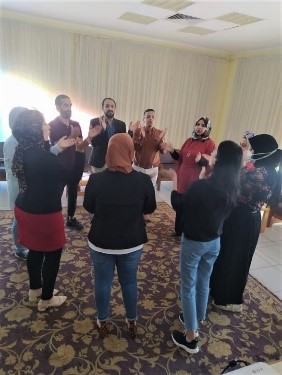
■Commencement of recorder lessons
After completing the training, recorder lessons began in November 2021 for 337 pupils in 9 EJS pilot schools. We were commended on the significance of selecting pilot schools distributed unevenly across the country and not concentrated in the big cities.
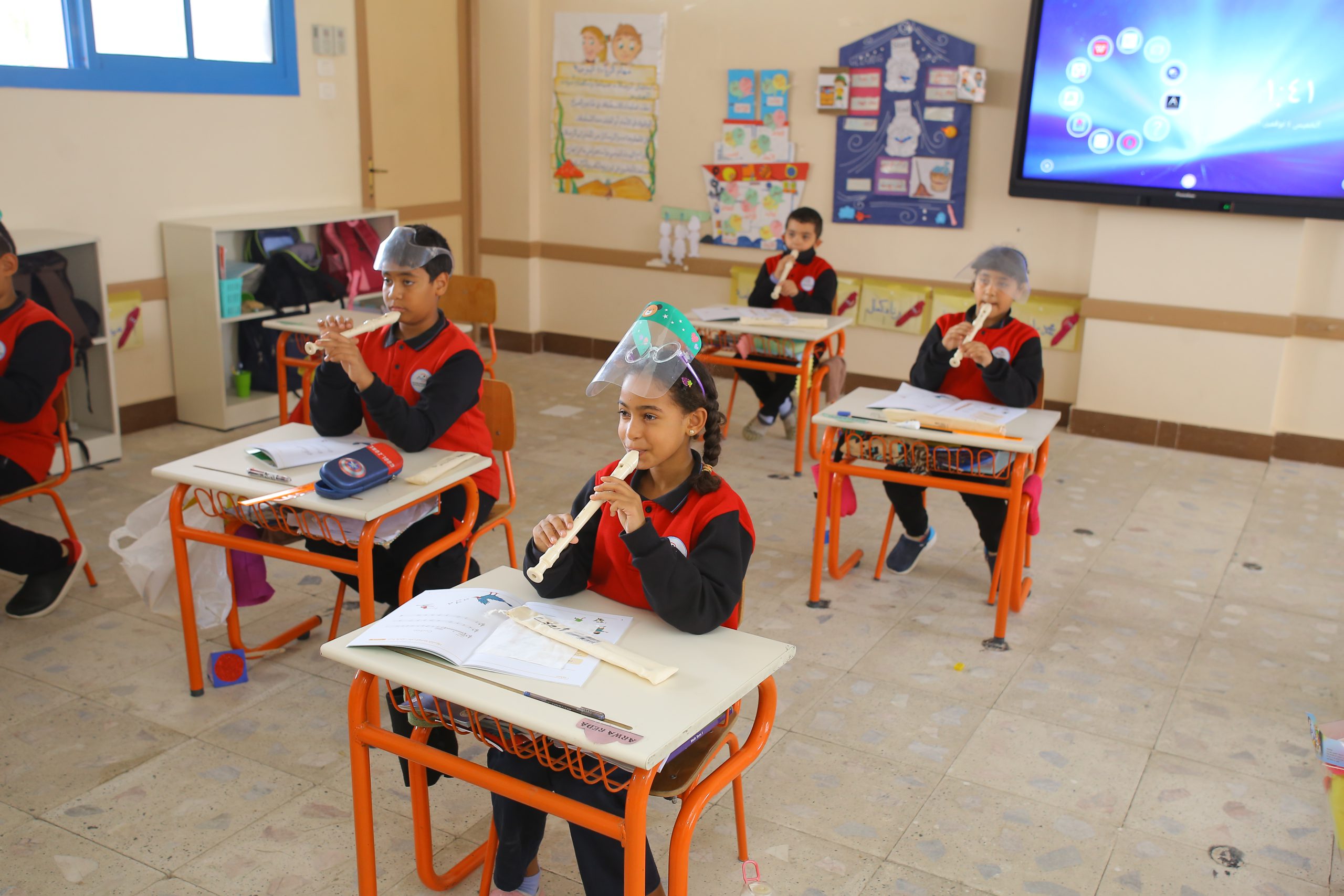
(Photograph provided by Ms. Nora Adel, a teacher at 10th of Ramadan EJS)
In most other subjects, there is only one correct answer and giving the correct answer is the final goal. But in music there is no correct answer for how music is expressed or interpreted, so we see many pupils expressing opinions and participating enthusiastically in lessons. Even teachers who in the past didn’t often ask pupils for their opinion now ask for their views, like facilitators, and lessons are steadily becoming much more two-way and interactive. Here are some of the comments we received.
<Mohamed, EJS teacher>
I never had the opportunity to learn or play the recorder or teach it to my pupils, so this was a totally new experience for me. But thanks to the training, I can now play the recorder and I can give classes using the recorder. Thank you so much.
<Ali Ibrahim Algohary, 3rd grade elementary school pupil>
The recorder is great fun and it makes a beautiful sound like birds singing. I enjoy playing the recorder and listening to music in music lessons.
<Ms. Akiko Otsuji, EJS Supervisor>
When this project was launched, I was impressed by the eagerness of the Egyptian teachers to embrace something new. The training and lessons taught me that, even when listening to the same sounds, cultural, religious and other differences give rise to different perceptions and feelings, and I realized anew that there is more than one way to express music. I think it also means that the way people think and perceive things differs depending on the country, environment, and culture, and I hope to get a better understanding of how diverse values can be and to leverage education that promotes mutual recognition and respect in Japanese education.
We were also made aware again of the point that “not only with regard to music, people’s thinking and perceptions differ.”
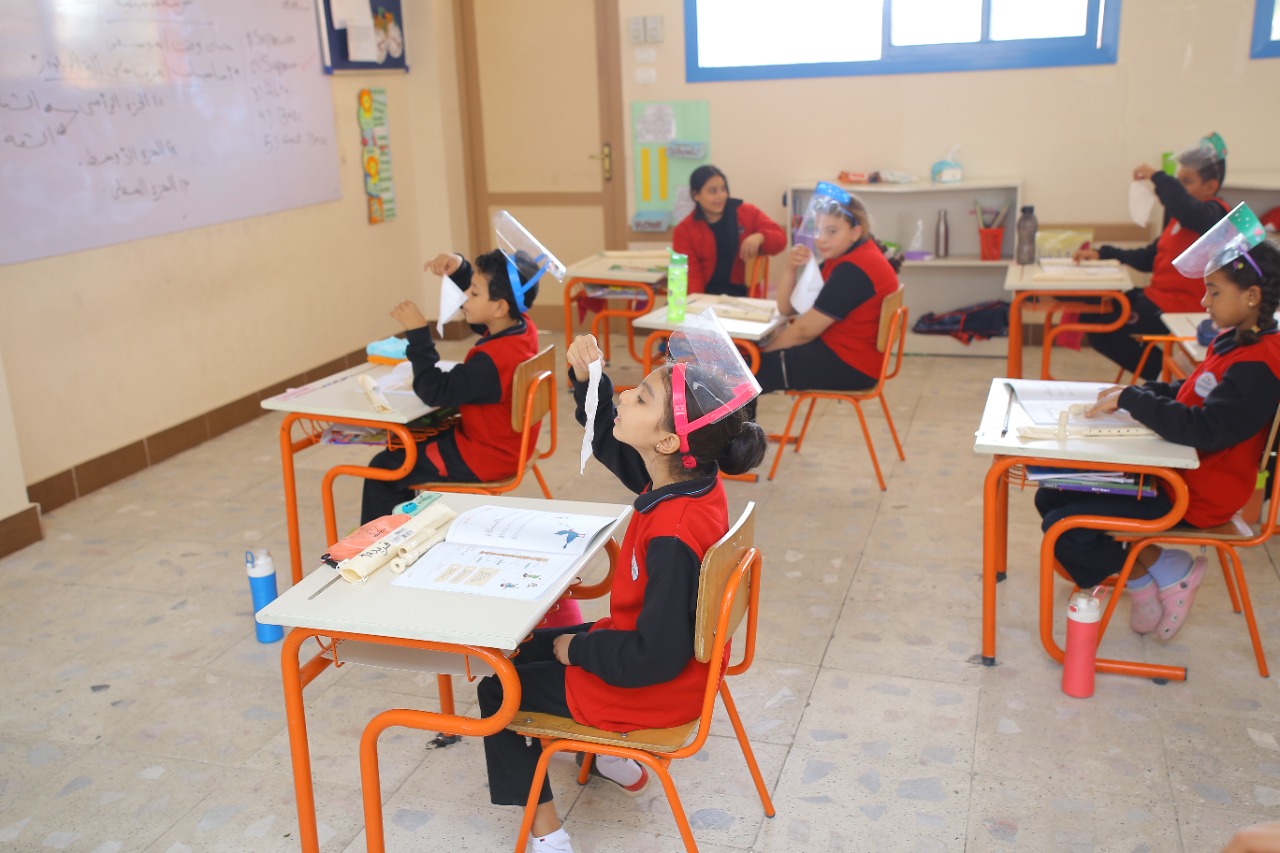
(Photograph provided by Ms. Nora Adel, a teacher at 10th of Ramadan EJS)
■Study of non-cognitive skill assessment methods
In collaboration with NPO Tokyo Gakugei University Children Institute for the Future, we began considering ways of assessing non-cognitive skills using three methods. The first method is comparative verification by conducting the same questionnaire survey before and after the introduction of recorder lessons. The questionnaire survey before the start of recorder lessons has already been completed at an experimental group of 10 schools and a control group of 10 schools. As lessons have now begun, the second method is being employed where all recorder lessons are recorded and “the classroom scenes qualitatively studied”. The third method involves interviewing the teachers who give recorder lessons after one year of teaching, categorizing the teachers’ comments by content and closely examining the groupings and relationship.
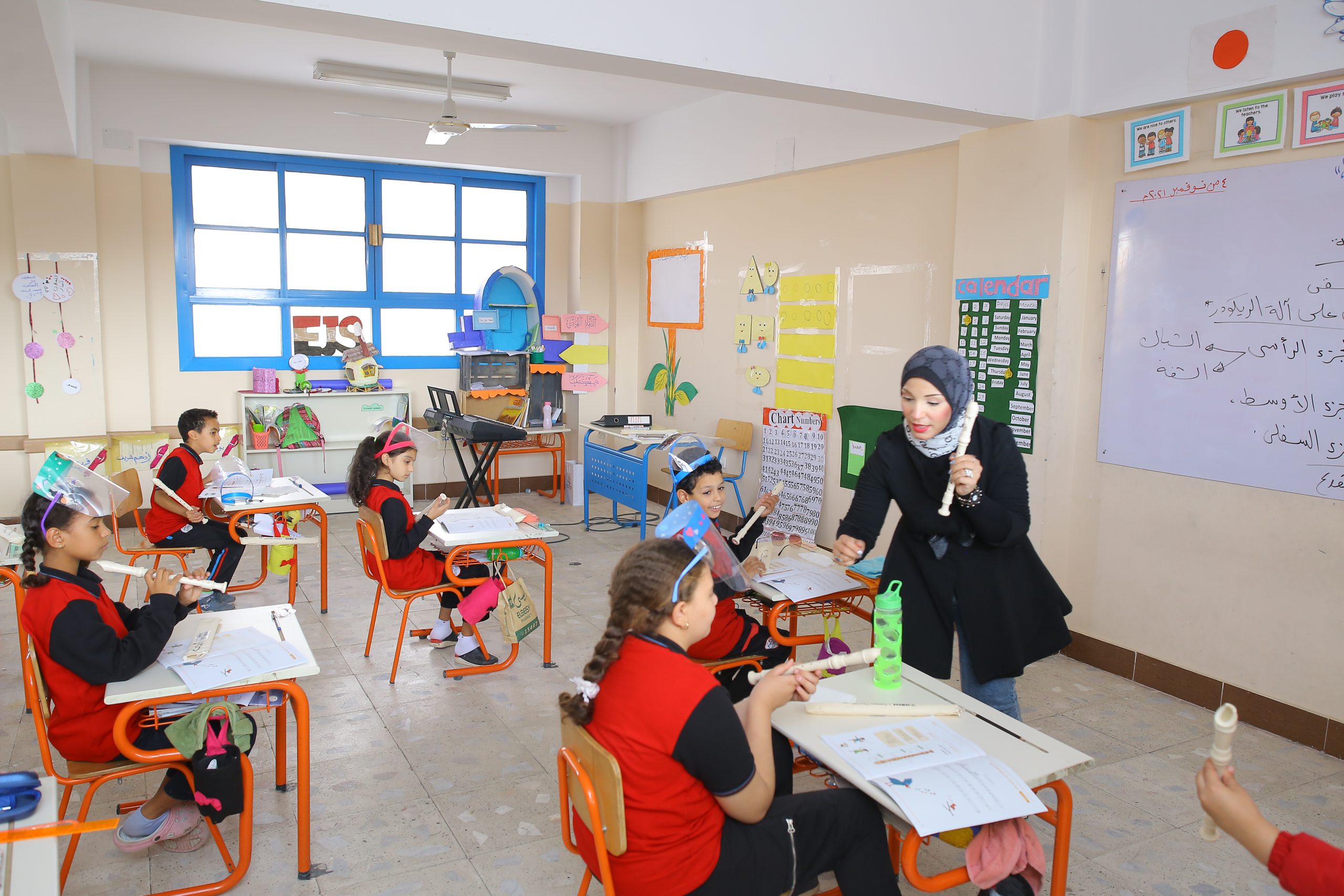
(Photograph provided by Ms. Nora Adel, a teacher at 10th of Ramadan EJS)
Through activities that use sound, music and musical instruments, we will continue to gather and analyze the evidence while working to improve the activities so that they can be shared with and appreciated by others, without keeping this experience to ourselves, and to foster individuality and mutual respect.
__________________

